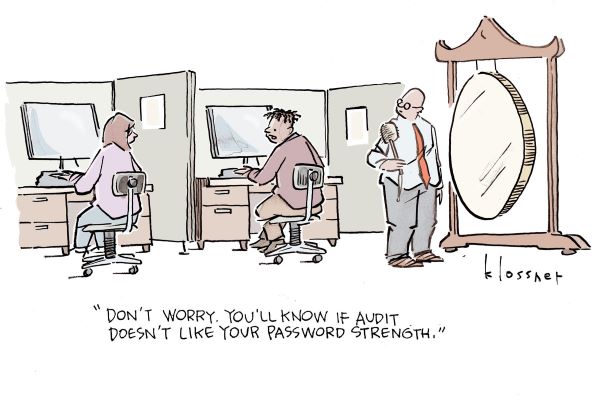
-----BEGIN PGP SIGNED MESSAGE-----
Hash: SHA256
===========================================================================
AUSCERT External Security Bulletin Redistribution
ESB-2021.0071
USN-4681-1: Linux kernel vulnerabilities
7 January 2021
===========================================================================
AusCERT Security Bulletin Summary
---------------------------------
Product: kernel
Publisher: Ubuntu
Operating System: Ubuntu
Impact/Access: Denial of Service -- Existing Account
Access Confidential Data -- Existing Account
Resolution: Patch/Upgrade
CVE Names: CVE-2020-28974 CVE-2020-27675 CVE-2020-25668
CVE-2020-25656 CVE-2020-4788 CVE-2019-0148
Reference: ESB-2020.4391
ESB-2020.4375
ESB-2020.4284
Original Bulletin:
https://ubuntu.com/security/notices/USN-4681-1
- --------------------------BEGIN INCLUDED TEXT--------------------
USN-4681-1: Linux kernel vulnerabilities
06 January 2021
Several security issues were fixed in the Linux kernel.
Releases
o Ubuntu 16.04 LTS
o Ubuntu 14.04 ESM
Packages
o linux - Linux kernel
o linux-aws - Linux kernel for Amazon Web Services (AWS) systems
o linux-kvm - Linux kernel for cloud environments
o linux-lts-xenial - Linux hardware enablement kernel from Xenial for Trusty
o linux-raspi2 - Linux kernel for Raspberry Pi (V8) systems
o linux-snapdragon - Linux kernel for Qualcomm Snapdragon processors
Details
Ryan Hall discovered that the Intel 700 Series Ethernet Controllers driver
in the Linux kernel did not properly deallocate memory in some conditions.
A local attacker could use this to cause a denial of service (kernel memory
exhaustion). (CVE-2019-0148)
It was discovered that the console keyboard driver in the Linux kernel
contained a race condition. A local attacker could use this to expose
sensitive information (kernel memory). (CVE-2020-25656)
Minh Yuan discovered that the tty driver in the Linux kernel contained race
conditions when handling fonts. A local attacker could possibly use this to
expose sensitive information (kernel memory). (CVE-2020-25668)
Jinoh Kang discovered that the Xen event channel infrastructure in the
Linux kernel contained a race condition. An attacker in guest could
possibly use this to cause a denial of service (dom0 crash).
(CVE-2020-27675)
Minh Yuan discovered that the framebuffer console driver in the Linux
kernel did not properly handle fonts in some conditions. A local attacker
could use this to cause a denial of service (system crash) or possibly
expose sensitive information (kernel memory). (CVE-2020-28974)
It was discovered that Power 9 processors could be coerced to expose
information from the L1 cache in certain situations. A local attacker could
use this to expose sensitive information. (CVE-2020-4788)
Update instructions
The problem can be corrected by updating your system to the following package
versions:
Ubuntu 16.04
o linux-image-4.4.0-1085-kvm - 4.4.0-1085.94
o linux-image-4.4.0-1119-aws - 4.4.0-1119.133
o linux-image-4.4.0-1143-raspi2 - 4.4.0-1143.153
o linux-image-4.4.0-1147-snapdragon - 4.4.0-1147.157
o linux-image-4.4.0-198-generic - 4.4.0-198.230
o linux-image-4.4.0-198-generic-lpae - 4.4.0-198.230
o linux-image-4.4.0-198-lowlatency - 4.4.0-198.230
o linux-image-4.4.0-198-powerpc-e500mc - 4.4.0-198.230
o linux-image-4.4.0-198-powerpc-smp - 4.4.0-198.230
o linux-image-4.4.0-198-powerpc64-emb - 4.4.0-198.230
o linux-image-4.4.0-198-powerpc64-smp - 4.4.0-198.230
o linux-image-aws - 4.4.0.1119.124
o linux-image-generic - 4.4.0.198.204
o linux-image-generic-lpae - 4.4.0.198.204
o linux-image-kvm - 4.4.0.1085.83
o linux-image-lowlatency - 4.4.0.198.204
o linux-image-powerpc-e500mc - 4.4.0.198.204
o linux-image-powerpc-smp - 4.4.0.198.204
o linux-image-powerpc64-emb - 4.4.0.198.204
o linux-image-powerpc64-smp - 4.4.0.198.204
o linux-image-raspi2 - 4.4.0.1143.143
o linux-image-snapdragon - 4.4.0.1147.139
o linux-image-virtual - 4.4.0.198.204
Ubuntu 14.04
o linux-image-4.4.0-1083-aws - 4.4.0-1083.87
o linux-image-4.4.0-198-generic - 4.4.0-198.230~14.04.1
o linux-image-4.4.0-198-generic-lpae - 4.4.0-198.230~14.04.1
o linux-image-4.4.0-198-lowlatency - 4.4.0-198.230~14.04.1
o linux-image-4.4.0-198-powerpc-e500mc - 4.4.0-198.230~14.04.1
o linux-image-4.4.0-198-powerpc-smp - 4.4.0-198.230~14.04.1
o linux-image-4.4.0-198-powerpc64-emb - 4.4.0-198.230~14.04.1
o linux-image-4.4.0-198-powerpc64-smp - 4.4.0-198.230~14.04.1
o linux-image-aws - 4.4.0.1083.80
o linux-image-generic-lpae-lts-xenial - 4.4.0.198.173
o linux-image-generic-lts-xenial - 4.4.0.198.173
o linux-image-lowlatency-lts-xenial - 4.4.0.198.173
o linux-image-powerpc-e500mc-lts-xenial - 4.4.0.198.173
o linux-image-powerpc-smp-lts-xenial - 4.4.0.198.173
o linux-image-powerpc64-emb-lts-xenial - 4.4.0.198.173
o linux-image-powerpc64-smp-lts-xenial - 4.4.0.198.173
o linux-image-virtual-lts-xenial - 4.4.0.198.173
After a standard system update you need to reboot your computer to make
all the necessary changes.
ATTENTION: Due to an unavoidable ABI change the kernel updates have
been given a new version number, which requires you to recompile and
reinstall all third party kernel modules you might have installed.
Unless you manually uninstalled the standard kernel metapackages
(e.g. linux-generic, linux-generic-lts-RELEASE, linux-virtual,
linux-powerpc), a standard system upgrade will automatically perform
this as well.
References
o CVE-2020-25668
o CVE-2020-4788
o CVE-2019-0148
o CVE-2020-28974
o CVE-2020-27675
o CVE-2020-25656
Related notices
o USN-4657-1 : linux-image-4.4.0-197-lowlatency, linux-image-kvm,
linux-image-4.4.0-197-powerpc-e500mc, linux-image-4.4.0-1082-aws,
linux-image-powerpc-e500mc, linux-image-generic-lpae-lts-xenial,
linux-image-4.4.0-197-generic, linux-image-raspi2,
linux-image-4.4.0-197-generic-lpae, linux-image-4.4.0-1118-aws,
linux-image-powerpc-smp-lts-xenial, linux-image-virtual-lts-xenial,
linux-image-4.4.0-197-powerpc-smp, linux-image-4.4.0-1146-snapdragon,
linux-image-4.4.0-197-powerpc64-emb, linux-image-powerpc-smp, linux-kvm,
linux-image-generic, linux-image-4.4.0-1084-kvm,
linux-image-powerpc64-emb-lts-xenial, linux-image-powerpc64-smp,
linux-lts-xenial, linux-image-4.4.0-1142-raspi2, linux-image-generic-lpae,
linux-image-powerpc-e500mc-lts-xenial, linux-raspi2, linux-aws,
linux-image-virtual, linux-image-generic-lts-xenial, linux,
linux-image-powerpc64-smp-lts-xenial, linux-snapdragon,
linux-image-lowlatency, linux-image-4.4.0-197-powerpc64-smp,
linux-image-lowlatency-lts-xenial, linux-image-powerpc64-emb,
linux-image-aws, linux-image-snapdragon
o USN-4680-1 : linux-image-kvm, linux-image-azure,
linux-image-4.15.0-1082-kvm, linux-image-powerpc-e500mc, linux-gcp-4.15,
linux-image-4.15.0-1103-azure, linux-image-raspi2,
linux-image-4.15.0-129-generic-lpae, linux-image-4.15.0-129-lowlatency,
linux-image-4.15.0-1077-raspi2, linux-gke-4.15,
linux-image-4.15.0-129-generic, linux-image-4.15.0-1094-snapdragon,
linux-image-azure-lts-18.04, linux-image-powerpc-smp,
linux-image-4.15.0-1062-oracle, linux-image-gke, linux-image-oracle,
linux-image-generic-hwe-16.04, linux-image-virtual-hwe-16.04,
linux-image-generic-lpae-hwe-16.04, linux-image-gke-4.15, linux-azure-4.15,
linux-kvm, linux-image-aws-lts-18.04, linux-image-gcp,
linux-image-4.15.0-1091-gcp, linux-image-generic, linux-image-aws-hwe,
linux-image-powerpc64-smp, linux-image-generic-lpae, linux-raspi2,
linux-aws-hwe, linux-azure, linux-aws, linux-oracle,
linux-image-gcp-lts-18.04, linux-image-virtual,
linux-image-4.15.0-1077-gke, linux-image-oracle-lts-18.04,
linux-image-4.15.0-1091-aws, linux-image-lowlatency-hwe-16.04, linux,
linux-snapdragon, linux-image-lowlatency, linux-image-oem,
linux-image-powerpc64-emb, linux-hwe, linux-gcp, linux-image-snapdragon
o USN-4679-1 : linux-oracle-5.4, linux-image-kvm, linux-image-azure,
linux-image-snapdragon-hwe-18.04, linux-image-5.4.0-59-generic-lpae,
linux-image-5.4.0-1026-raspi, linux-image-5.4.0-1033-gke,
linux-image-raspi2, linux-image-oem-osp1, linux-image-virtual-hwe-18.04,
linux-aws-5.4, linux-image-5.4.0-1035-azure, linux-image-gke-5.4,
linux-gcp-5.4, linux-image-generic-lpae-hwe-18.04, linux-image-oracle,
linux-image-5.4.0-1034-oracle, linux-image-raspi-hwe-18.04,
linux-image-5.4.0-59-generic, linux-kvm, linux-image-gcp,
linux-image-generic, linux-image-5.4.0-1031-kvm, linux-gke-5.4,
linux-image-generic-lpae, linux-azure, linux-azure-5.4, linux-aws,
linux-image-generic-hwe-18.04, linux-hwe-5.4, linux-oracle,
linux-image-virtual, linux-raspi, linux-raspi-5.4,
linux-image-5.4.0-1034-aws, linux-image-lowlatency-hwe-18.04, linux,
linux-image-5.4.0-1033-gcp, linux-image-5.4.0-59-lowlatency,
linux-image-lowlatency, linux-image-oem, linux-image-raspi,
linux-image-aws, linux-gcp
o USN-4659-1 : linux-image-kvm, linux-image-azure, linux-image-generic-64k,
linux-image-raspi-nolpae, linux-image-5.8.0-1012-gcp,
linux-image-5.8.0-31-generic-lpae, linux-image-5.8.0-1008-raspi-nolpae,
linux-image-gke, linux-image-oracle, linux-kvm, linux-image-gcp,
linux-image-generic, linux-image-5.8.0-1011-kvm,
linux-image-5.8.0-1011-oracle, linux-image-5.8.0-1013-azure,
linux-image-5.8.0-31-generic, linux-image-5.8.0-31-generic-64k,
linux-image-5.8.0-31-lowlatency, linux-image-generic-lpae,
linux-image-oem-20.04, linux-azure, linux-image-5.8.0-1014-aws, linux-aws,
linux-oracle, linux-raspi, linux-image-virtual,
linux-image-5.8.0-1008-raspi, linux, linux-image-lowlatency,
linux-image-raspi, linux-image-aws, linux-gcp
o USN-4660-1 : linux-image-kvm, linux-image-azure, linux-oem,
linux-image-4.15.0-126-generic-lpae, linux-gcp-4.15,
linux-image-powerpc-e500mc, linux-image-raspi2, linux-image-azure-edge,
linux-gke-4.15, linux-image-4.15.0-1088-aws, linux-image-azure-lts-18.04,
linux-image-powerpc-smp, linux-image-4.15.0-1103-oem, linux-image-gke,
linux-image-oracle, linux-image-generic-hwe-16.04,
linux-image-4.15.0-1100-azure, linux-image-virtual-hwe-16.04,
linux-image-generic-lpae-hwe-16.04, linux-image-gke-4.15, linux-azure-4.15,
linux-kvm, linux-image-4.15.0-1079-kvm, linux-image-aws-lts-18.04,
linux-image-gcp, linux-image-generic, linux-image-aws-hwe,
linux-image-powerpc64-smp, linux-image-generic-lpae, linux-raspi2,
linux-aws-hwe, linux-azure, linux-image-4.15.0-1074-raspi2,
linux-image-4.15.0-126-generic, linux-aws, linux-image-gcp-lts-18.04,
linux-image-virtual, linux-image-4.15.0-126-lowlatency, linux-oracle,
linux-image-oracle-lts-18.04, linux-image-lowlatency-hwe-16.04,
linux-image-4.15.0-1088-gcp, linux, linux-image-4.15.0-1091-snapdragon,
linux-image-4.15.0-1059-oracle, linux-snapdragon,
linux-image-4.15.0-1074-gke, linux-image-lowlatency, linux-image-oem,
linux-image-powerpc64-emb, linux-hwe, linux-gcp, linux-image-snapdragon
o USN-4658-1 : linux-oracle-5.4, linux-image-kvm, linux-image-azure,
linux-image-generic-hwe-20.04, linux-image-5.4.0-1028-kvm,
linux-image-snapdragon-hwe-18.04, linux-image-5.4.0-56-generic-lpae,
linux-image-raspi2, linux-image-oem-osp1, linux-image-virtual-hwe-18.04,
linux-image-5.4.0-56-generic, linux-image-5.4.0-1030-oracle, linux-aws-5.4,
linux-gcp-5.4, linux-image-generic-lpae-hwe-18.04, linux-image-gke,
linux-image-oracle, linux-image-generic-lpae-hwe-20.04,
linux-image-raspi-hwe-18.04, linux-kvm, linux-image-lowlatency-hwe-20.04,
linux-image-virtual-hwe-20.04, linux-image-gcp, linux-image-generic,
linux-image-generic-lpae, linux-azure, linux-azure-5.4,
linux-image-5.4.0-56-lowlatency, linux-aws, linux-image-generic-hwe-18.04,
linux-hwe-5.4, linux-oracle, linux-image-virtual, linux-raspi,
linux-image-5.4.0-1023-raspi, linux-raspi-5.4,
linux-image-lowlatency-hwe-18.04, linux-image-5.4.0-1030-aws,
linux-image-5.4.0-1030-gcp, linux-image-5.4.0-1032-azure, linux,
linux-image-lowlatency, linux-image-oem, linux-image-raspi,
linux-image-aws, linux-gcp
- --------------------------END INCLUDED TEXT--------------------
You have received this e-mail bulletin as a result of your organisation's
registration with AusCERT. The mailing list you are subscribed to is
maintained within your organisation, so if you do not wish to continue
receiving these bulletins you should contact your local IT manager. If
you do not know who that is, please send an email to auscert@auscert.org.au
and we will forward your request to the appropriate person.
NOTE: Third Party Rights
This security bulletin is provided as a service to AusCERT's members. As
AusCERT did not write the document quoted above, AusCERT has had no control
over its content. The decision to follow or act on information or advice
contained in this security bulletin is the responsibility of each user or
organisation, and should be considered in accordance with your organisation's
site policies and procedures. AusCERT takes no responsibility for consequences
which may arise from following or acting on information or advice contained in
this security bulletin.
NOTE: This is only the original release of the security bulletin. It may
not be updated when updates to the original are made. If downloading at
a later date, it is recommended that the bulletin is retrieved directly
from the author's website to ensure that the information is still current.
Contact information for the authors of the original document is included
in the Security Bulletin above. If you have any questions or need further
information, please contact them directly.
Previous advisories and external security bulletins can be retrieved from:
https://www.auscert.org.au/bulletins/
===========================================================================
Australian Computer Emergency Response Team
The University of Queensland
Brisbane
Qld 4072
Internet Email: auscert@auscert.org.au
Facsimile: (07) 3365 7031
Telephone: (07) 3365 4417 (International: +61 7 3365 4417)
AusCERT personnel answer during Queensland business hours
which are GMT+10:00 (AEST).
On call after hours for member emergencies only.
===========================================================================
-----BEGIN PGP SIGNATURE-----
Comment: http://www.auscert.org.au/render.html?it=1967
iQIVAwUBX/Zhx+NLKJtyKPYoAQjJAw/8DnfWTLmmEEntEOaDIu+bxrV1NyZiQ+NH
qnFW4BIbn8ro3adgNv3egP4cZPevIfITz04rSvYo+LT6LMHucuH/NAYOGTOstAd+
shJSjXrncPmTOOgqi04MI/KT7KOq03//0c5U7z4TSsYWfwCCJAaC7F/vswehI6Tr
Gy/WO5iHWh4CkHFUjbCOyliA2otrkLJrsac9bmGAPu9l6T1thUfmpYlQ/YDZbiOs
bm81lOISoEZcu8vCN6ZyFJXJx3uq6mQh6L934wIWZbn6zk+Lg2VZ2oMHydVoXgEZ
XvV3lvdKJKw06hOXbkGuTUOyGqxPdHkwbK3TTqhuIIzkqIuVqnmdyg3amEOLc//I
e2k7D3rOeak1YItcegt3E9dWPoxK5jsS5tPx4iT1/aniTC7Yq2QZsE/ukwguCJ8M
XHRltixMVbIzSaSuWW75+ABO8ISxNirdyvehdopOFmC9Y7KL9EYqLdxgp/ct2odE
e+oVpOLDfkYeJeKZlCUDDYBPQ9STrO/e3mEOcg2z5R8L1B+4ANJTof6xKhVOw8Zu
+DoqGgqpytaetrk9tEwl9wYKqNm7jmT0rinQoPMdCNhmHyq68gC5A1uRLD3JInU/
80JvJkOB6tDWU/avFcfxz6lpT56cBnB9sm6hY3Cff4laDhblr/hxsj+DrroFYzkf
kuQ2XiTvwMg=
=TeH3
-----END PGP SIGNATURE-----
The post ESB-2021.0071 – [Ubuntu] kernel: Multiple vulnerabilities appeared first on Malware Devil.
https://malwaredevil.com/2021/01/07/esb-2021-0071-ubuntu-kernel-multiple-vulnerabilities/?utm_source=rss&utm_medium=rss&utm_campaign=esb-2021-0071-ubuntu-kernel-multiple-vulnerabilities















